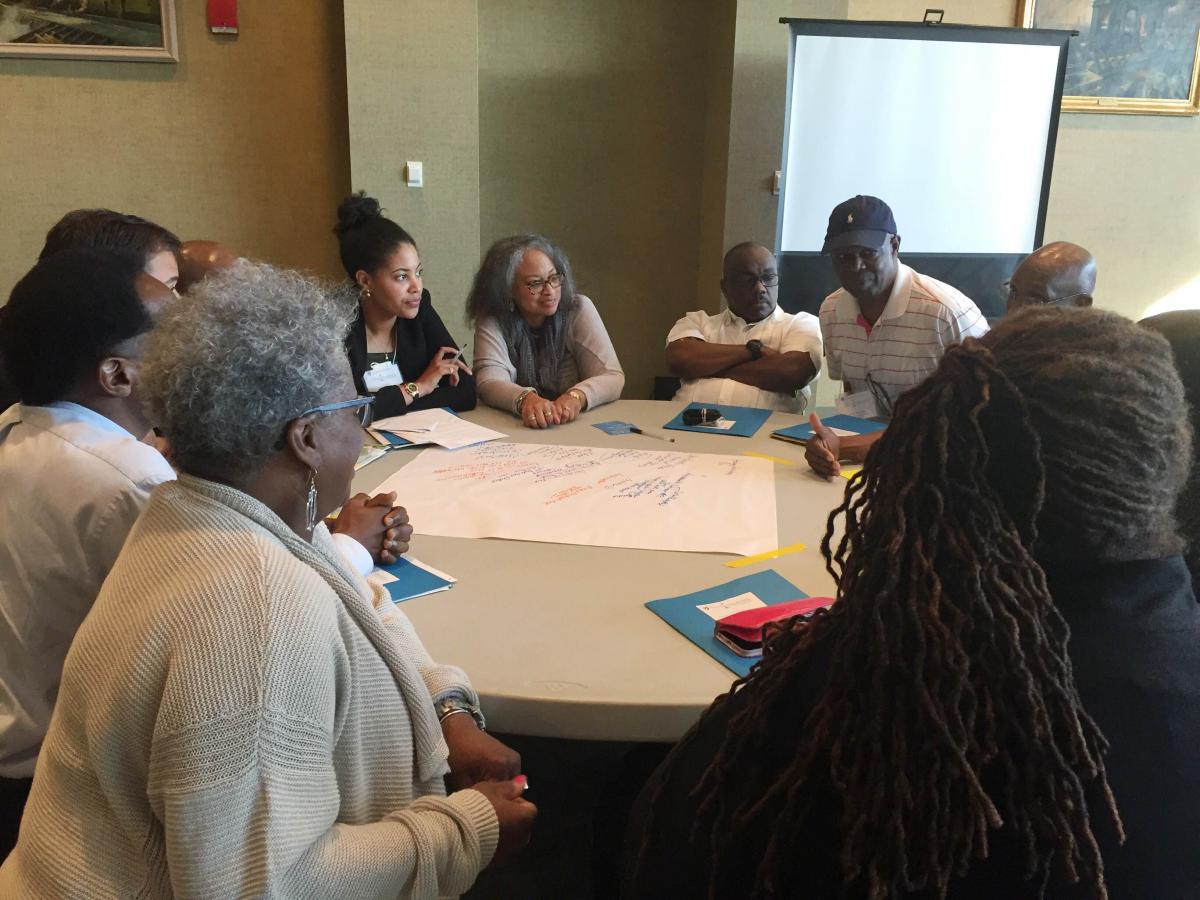Mobilizing Movement: Trailblazer decides to take action from inspiring directives at 2016 Summit
Food Solutions New England hosted the 6th in a series of Regional Food Summits in Bridgeport, CT on June 8–9, 2016. This two-day event featured more than 180 delegates from the six New England states working across the food system. Planners, farmers and farm workers, chefs, funders, government officials, and students came together for discussions on topics including food recovery, policy, healthy, food chain workers, and more.
Food Solutions New England (FSNE) heard from Jordan Fowler, a delegate to the 2016 Summit.
Q: We spoke with you before the Food Summit, what was your experience like?
A: The 2016 New England Food Summit in Bridgeport Connecticut was an amazing event and I am extremely grateful to have had the opportunity to participate! Attending having been invited by Julius Kolawole and the African Alliance of Rhode Island, I had the distinct privilege of serving in the Rhode Island delegation as a “Trailblazer” —a collective of like-minded, community-oriented African Heritage peoples who believe in the positive impact of a New England Food Vision. It was great to be surrounded by so much energy and passion and I look forward to helping channel that energy into new ways to engage people in the effort to advance our goals.
Q: How did the Summit influence your view of the Vision?
A: I learned a lot during the Summit and greatly appreciate the hard data as well as the personal stories shared by different session speakers. The prospect of transforming both data and testimony into catalysts for lasting and impactful community building and policy change is very exciting to me and I look forward to finding creative ways to best utilize the networks we are building. The dedication to the Food Solutions New England (FSNE) Vision of producing 50% of the region’s food by 2060 is inspiring! Surely New England has both the drive and ability to create a sustainable future for our food system that is built on a foundation of racial equity and community empowerment. I believe that it is our responsibility to encourage our leaders and our community to support that mission.
Q: What are you doing now to further this Vision of 50 by 60? How will FSNE values be reflected in the work you do?
A: My exposure to the many great minds in the FSNE network has inspired me to continue this work through integrating it into my efforts of community outreach and development in Rhode Island. As a historical consultant working with mainly with minority-centered nonprofits, a majority of my work mirrors the FSNE value of racial equity. I feel that the rich history relating the cultural narratives surrounding food to African Heritage peoples in RI speaks directly to this. Racial equity is an integral component of the FSNE core and serves as a cornerstone of all efforts to bring sustainable change to our food system. We have to change the way people think about food as well as enlighten and expand perceptions of what healthy communities can look like for all different cultures. In addition to working towards diversifying the farmers’ markets in our area, I want more people to take ownership of the power in their food story. At the African Alliance, we highlight the belief that food is medicine: the nutritional integrity of what we consume is connected to the deeper history of the cultivation of that food, from farm to table. If more people know both the history and benefits of clean cultural foods and how their heritage is connected, then maybe they can be empowered to support a New England Food Vision as well.
Q: If you could sum up your hopes for the future in 3 words or less, what they be?
A: Together we move. Togetherness is essential. We, all of us, must do what we can to uplift, empower and build one another in believing in the work of FSNE and contributing in our own unique ways. Everyone who is involved with or touched by FSNE has the potential to shed light on how this work is highly relevant to their own sector of work. Van Gough noted that “great things are done by a series of small things done together.” We’re moving onwards and upwards in the right direction; we just have to keep moving.
Jordan Fowler is an Executive Assistant at 1696 Heritage Group, a historical consulting firm dedicated to helping persons and institutions of color to increase their knowledge and access to the light of truth of their unique American heritage.




